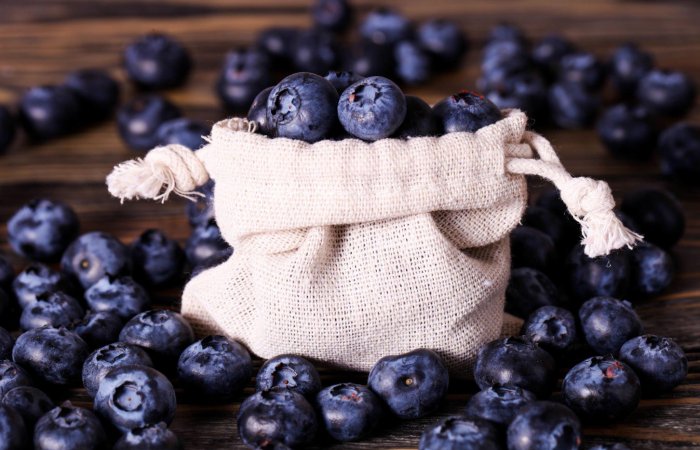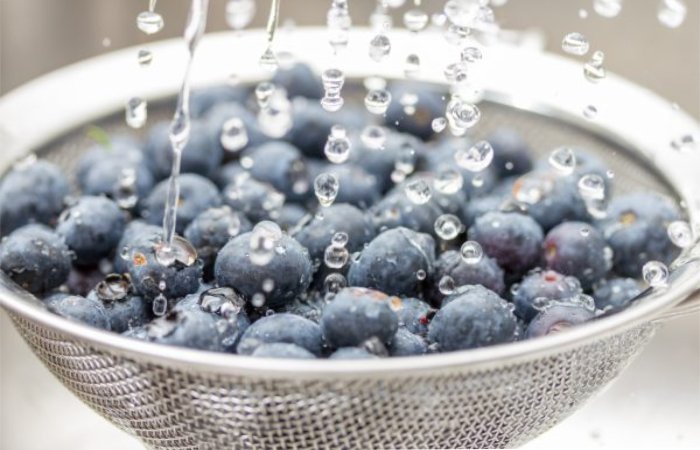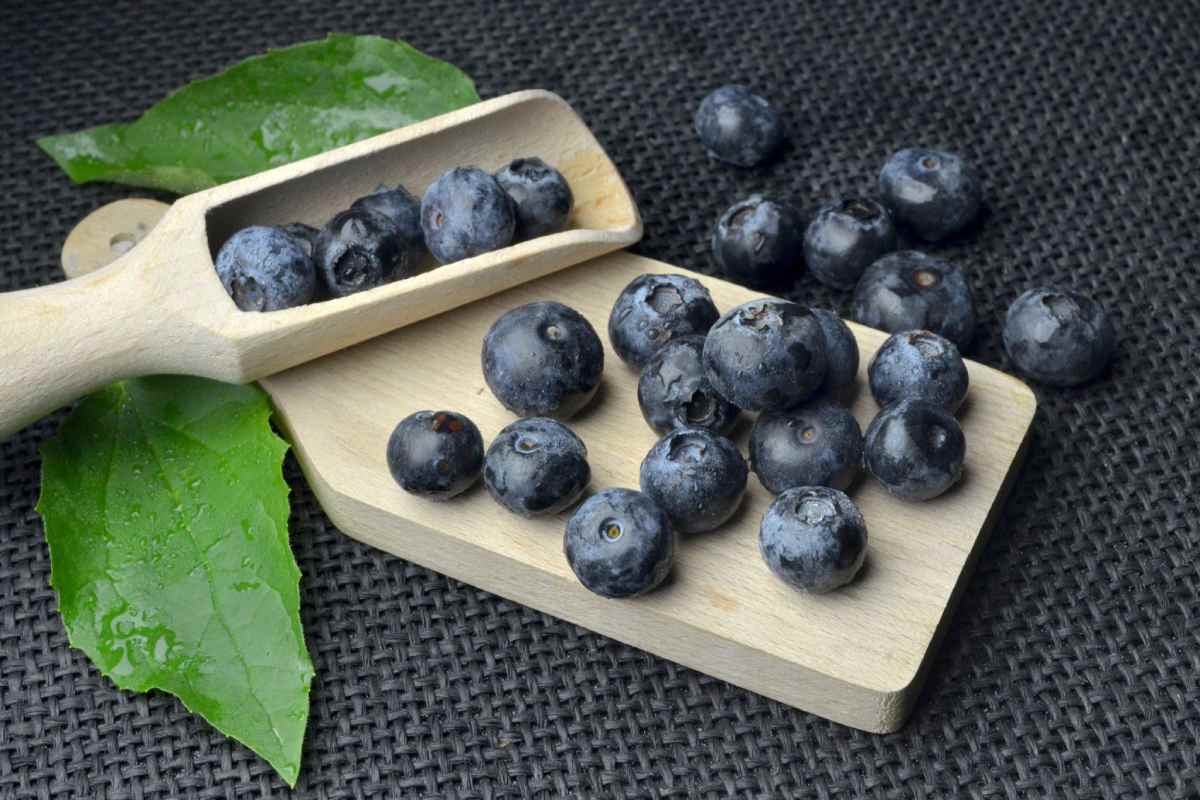Table of Contents
Introduction
Blueberry In Hindi – Blueberry is a North American shrub of the genus Vaccinium (family Ericaceae), prized for its sweet edible fruits. Hailed as a superfood, blueberries are an excellent source of dietary fiber, vitamin C, vitamin K, manganese, iron, and several antioxidants. Blueberries are commonly eaten fresh as a dessert fruit and can be baked in various pastries. Blueberries are closely connected to cranberries and bilberries, also members of the genus Vaccinium.
Health Benefits of Blueberry
 Blueberries contain vitamins, minerals, and antioxidants that deliver notable health benefits. For example, blueberries are high in vitamin K, vital in promoting heart health. The vitamin is also crucial for bone health and blood clotting.
Blueberries contain vitamins, minerals, and antioxidants that deliver notable health benefits. For example, blueberries are high in vitamin K, vital in promoting heart health. The vitamin is also crucial for bone health and blood clotting.
Other health benefits of blueberries include:
High Levels of Antioxidants
Blueberries are one of the finest natural sources of antioxidants. While antioxidants are not essential for your body to function, they help protect you from free radical damage. Your cells make free radicals as waste products, but these particles can damage other cells. Eating blueberries frequently for just two weeks can help reduce cell damage by up to 20%.
Better Cholesterol Levels
High cholesterol is bad for the heart because it can build up in the arteries. The cholesterol that builds up finally gets oxidized, which is terrible for your body if it happens in large amounts. The antioxidants in blueberries help prevent the oxidation of cholesterol in the blood and may also help prevent cholesterol from building up in the first place.
Manage High Blood Pressure
Eating blueberries daily can help reduce high blood pressure in people with metabolic syndrome and defend cardiovascular health. The present hypothesis is that blueberries help the body produce more nitric oxide, which lowers blood pressure within the blood vessels and helps smooth muscles relax.
Control Diabetes
Blueberries can help people with diabetes to better control their blood sugar levels. Studies have shown that eating blueberries daily can help recover insulin sensitivity in people with type 2 diabetes. Blueberries can also help lower fasting blood sugar levels by about a third in people with type 2 diabetes, which can It helps them control their blood sugar levels more effectively.
Side Effects of Blueberries
The side effects associated with blueberry are:
- No major study reports the side effects of blueberry.
- However, the prevalence of blueberry allergic reactions may be observed. Children may develop symptoms such as shortness of breath and back itching after ingesting blueberry fruit.5 A doctor should be immediately consulted to prevent health issues during such allergic reactions.
- Blueberry fruit or its leaves might lower blood pressure and drop blood sugar levels below average.3
However, if you experience any side effects, seek instant medical attention from the doctors who gave it to you. They will be the best guide to provide you with proper treatment.
How to Prepare Blueberries
 Blueberries are natural to temperate parts of North America. Traditionally, they are in season from April to September in the United States, but they are sold year-round as imports from South America. This delicious berry can be found in supermarkets, health food stores, and farmers’ markets nationwide.
Blueberries are natural to temperate parts of North America. Traditionally, they are in season from April to September in the United States, but they are sold year-round as imports from South America. This delicious berry can be found in supermarkets, health food stores, and farmers’ markets nationwide.
Blueberries add a subtle, sweet flavor that is perfect for baked goods and desserts. You can also enjoy cranberries raw as simple healthy snacks. Blueberries will keep longer if refrigerated or frozen, and they can be added fresh or frozen to most recipes with similar results.
Here are some suggestions on how to add blueberries to your daily diet:
- Eat blueberries raw as a snack.
- Bake a blueberry pie.
- Add blueberries to smoothies.
- Make blueberry juice.
- Include blueberries in pancakes.
- Dry blueberries for a raisin-like treat.
- Make a blueberry gazpacho.
Conclusion
Blueberries are named for their color. Blueberries are a hugely popular fruit because of their sweet and tart taste and almost seedless nature.
For centuries, people could only grow and harvest blueberries in small numbers. However, at the turn of the 20th century, they were domesticated and brought to the national market. Blueberries can now be eaten all year long as healthy, nutritious treats.

